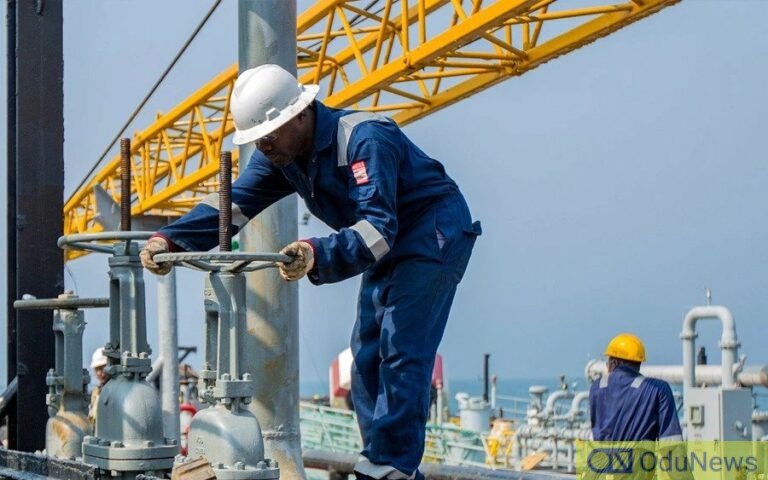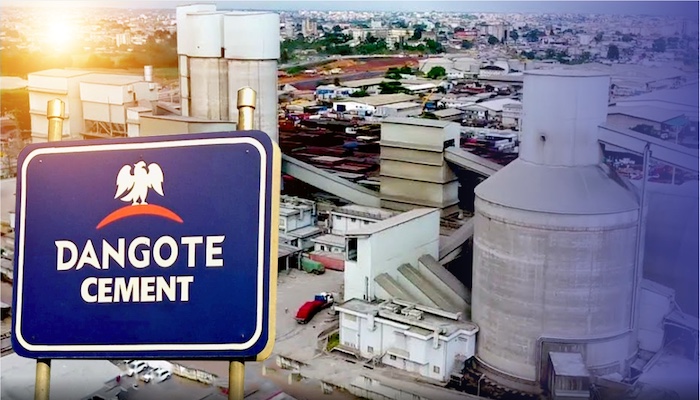The Nigerian National Petroleum Company Limited (NNPC Ltd.) has reaffirmed its goal of raising Nigeria’s crude oil production to two million barrels per day (bpd) by 2027, and to three million bpd by 2030.
This assurance came from Mr. Udy Ntia, Executive Vice President, Upstream, NNPC Ltd., during his presentation at the 2025 Abu Dhabi International Petroleum Exhibition and Conference (ADIPEC). The annual global event, hosted by the Abu Dhabi National Oil Company (ADNOC), brings together leaders from energy, technology, and finance sectors.
Collaborative Approach to Oil Production
Speaking at a session titled “Beyond the Barrel: The Future of Upstream Strategy,” Ntia said Nigeria’s upstream growth plan relies on technology, efficiency, and decarbonisation.
According to him, the sector’s evolution is now driven by collaboration, co-investment, and smarter capital deployment instead of competition. “It’s not only about producing more oil,” Ntia noted, “but producing better oil—cleaner, smarter, and more profitable.”
He stressed that NNPC Ltd. and its partners are growing steadily while minimizing the environmental impact of fossil fuels.
Technology as the Game Changer
tia identified three forces shaping the upstream landscape: energy transition pressures, industry fragmentation, and technological transformation.
He highlighted that innovations such as Artificial Intelligence (AI) and digital systems will unlock more value from mature oil fields. “Technology helps us extract more efficiently and make smarter investment decisions,” he said. “Our goal is better investment, not just higher spending.” These innovations, he explained, are essential to keeping Nigeria competitive and profitable in a fast-changing energy market.
Balancing Growth and Sustainability
On the topic of energy transition and decarbonisation, Ntia reaffirmed NNPC Ltd.’s commitment to responsible oil production. He emphasized that Africa contributes less than three percent of global emissions, insisting that the continent can decarbonize responsibly while continuing to grow.
He also mentioned ongoing initiatives such as gas flare reduction, monetisation projects, and pipeline expansions like the Nigeria–Morocco Gas Pipeline, which connects demand hubs in western and northern Nigeria.
According to Ntia, NNPC is investing in hybrid partnerships that promote co-investment in upstream projects. “Co-investment is the new form of financing,” he explained. “We are joining hands with partners to make projects bankable and decisions faster in a dynamic environment.”
Partnership Over Competition
Ntia stressed the need for stronger collaboration between National Oil Companies (NOCs) and International Oil Companies (IOCs). He said both groups share common goals—profitability, sustainability, and growth. “IOCs are not rivals; they are partners,” he said. “Our shared challenge is expanding the size of the pie so everyone benefits.”
He added that Nigeria’s upstream strategy now strikes a balance between energy security, profitability, and climate responsibility, ensuring the country’s oil remains vital in the global transition to cleaner energy sources.
Conclusion: Charting Nigeria’s Path to Energy Leadership
NNPC’s renewed upstream strategy reflects a forward-looking approach that blends innovation with responsibility. By combining technology, partnerships, and sustainability, the company aims to secure Nigeria’s place as a global energy leader while meeting the world’s changing energy needs.



